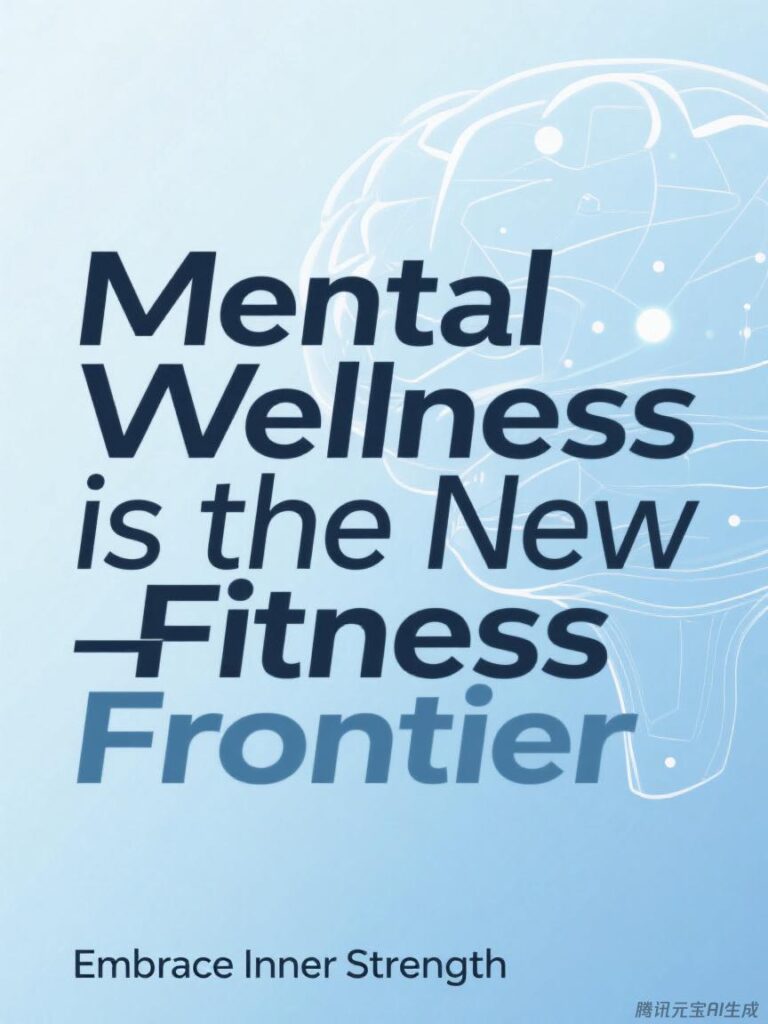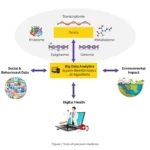Background
Think about the last time you prioritized your mental well-being. Did it come after a stressful week, or was it only when a crisis hit? For decades, society has equated fitness with the physical—cardio, strength, and flexibility. But a growing body of science reveals that true health cannot exist without mental wellness. As rates of anxiety, depression, and burnout rise globally, mental fitness is stepping out of the shadows and into the spotlight, reshaping what it means to be truly well.
Consider Mia, a fictional 38-year-old marketing executive. She runs three times a week, eats a balanced diet, and has annual check-ups. Yet, she finds herself irritable, increasingly withdrawn, and unable to sleep. Despite her physical “fitness,” Mia feels far from well. Her story is echoed by millions who realize that muscles and miles are only part of the equation.

Scientific and Clinical Evidence: What the Data Tell Us
The World Health Organization (WHO) defines mental health as more than the absence of illness—it is “a state of well-being in which every individual realizes his or her own potential, can cope with the normal stresses of life, can work productively, and can contribute to their community.” This holistic view is now underpinned by robust research.
Recent studies suggest that approximately one in four people will experience a mental health challenge in their lifetime. But mental wellness isn’t just about preventing or treating disorders; it’s about optimizing cognitive and emotional function for everyone.
Brain imaging and biomarker studies show how chronic stress, unchecked anxiety, or burnout alter the brain’s structure and function—shrinking areas involved in memory and emotion regulation, and dysregulating neurotransmitters. Conversely, practices like mindfulness, cognitive behavioral therapy (CBT), social connection, and regular exercise have measurable impacts on brain plasticity and resilience.
A 2023 meta-analysis in The Lancet Psychiatry found that people who engaged in regular physical activity reduced their risk of depression by up to 25%. But the relationship is bidirectional: strong mental health also predicts better physical health, faster recovery from illness, and even longer life expectancy.
Misconceptions and Harmful Behaviors
Despite advances in understanding, myths around mental wellness persist. Many believe that mental strength is innate or that seeking help is a sign of weakness. Pop culture sometimes trivializes self-care as indulgent, or equates mental fitness with mere positive thinking.
Harmful behaviors include self-medicating with alcohol, overworking to suppress distress, or ignoring symptoms until they become debilitating. Others may rely solely on quick fixes—apps, supplements, or “detoxes”—without addressing underlying issues or building sustainable habits.
Stigma remains a major barrier. According to a 2022 survey by the American Psychological Association, nearly half of respondents believed their employer would judge them for taking a mental health day. This fear of judgment leads many to suffer in silence, worsening outcomes and delaying effective interventions.
Correct Health Practices and Practical Recommendations
Just as physical fitness is cultivated through regular habits, so too is mental wellness. Experts recommend a multi-pronged approach:
1. **Routine Self-Check-Ins:** Regularly assess your mood, stress levels, and sleep patterns. Early recognition of changes can prompt timely action.
2. **Build Social Connections:** Strong social ties are one of the most consistent predictors of mental health. Prioritize meaningful interactions, even if brief.
3. **Move Your Body:** Exercise releases endorphins and supports neuroplasticity. Find an activity you enjoy, rather than forcing a routine you dread.
4. **Practice Mindfulness:** Techniques such as meditation, deep breathing, or journaling help regulate emotions and decrease reactivity to stress.
5. **Seek Professional Support:** Therapy and counseling are not just for crises. They can build resilience, teach coping skills, and facilitate personal growth.
6. **Set Boundaries:** Protect your time and mental energy. Learn to say no and recognize limits, both at work and home.
7. **Sleep Hygiene:** Quality sleep is foundational. Establish a calming bedtime routine and minimize digital distractions.
8. **Nutrition and Hydration:** The brain is a metabolic powerhouse. Balanced, nutrient-rich diets and adequate hydration support optimal functioning.
Expert Insights and Commentary
Dr. Elena Marquez, a clinical psychologist and wellness consultant, observes, “We’re witnessing a paradigm shift. People are beginning to view mental wellness the way we once viewed jogging in the 1970s—not as a luxury, but a necessity. The science is clear: you can train your mind for resilience and well-being.”
She emphasizes that while digital tools like mindfulness apps can be helpful, they work best alongside real-world social support and, when needed, professional guidance. “It’s not about perfection,” Dr. Marquez adds. “It’s about progress—cultivating small, sustainable habits that accumulate over time.”
Case Vignette: Mia, Revisited
Returning to Mia, she began integrating short mindfulness breaks into her day, prioritized weekly calls with a close friend, and sought counseling for workplace stress. Within months, her sleep improved, her mood stabilized, and she found herself more engaged both at work and home. Mia’s experience underscores that mental fitness, like physical fitness, is an ongoing journey, not a one-time fix.
Conclusion
The science is unequivocal: mental wellness is just as vital as physical health, if not more so. As our understanding deepens, the old dichotomy between mind and body is dissolving—replaced by a vision of holistic fitness. Prioritizing mental health isn’t just a response to crisis; it’s the new frontier of everyday well-being. Whether through mindfulness, movement, therapy, or connection, the path to mental fitness is open to all.
References
1. World Health Organization. Mental health: strengthening our response. 2022. https://www.who.int/news-room/fact-sheets/detail/mental-health-strengthening-our-response
2. Schuch FB, et al. Physical activity and incident depression: a meta-analysis of prospective cohort studies. The American Journal of Psychiatry. 2018;175(7):631-648.
3. American Psychological Association. Stress in America 2022. https://www.apa.org/news/press/releases/stress/2022/report
4. Holmes EA, et al. The Lancet Psychiatry Commission on psychological treatments research in tomorrow’s science. The Lancet Psychiatry. 2023;10(2):87-118.
5. National Institute of Mental Health. Mental Illness. https://www.nimh.nih.gov/health/statistics/mental-illness



